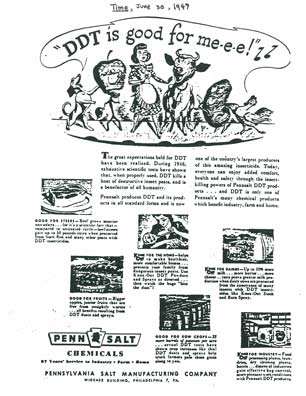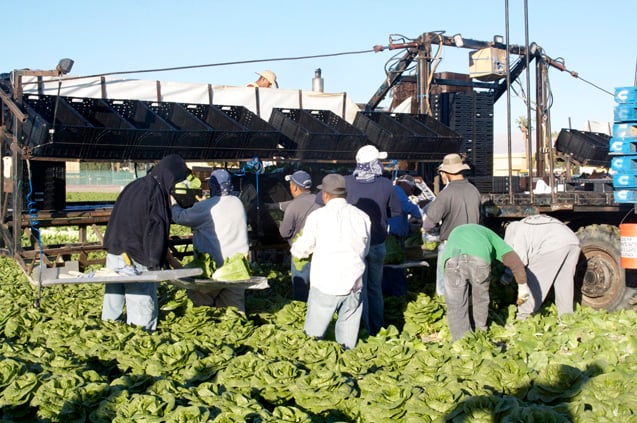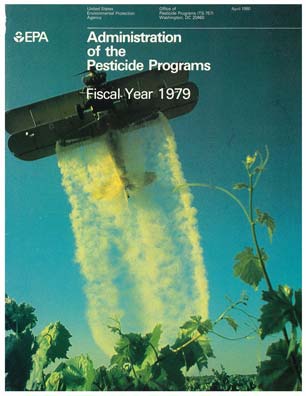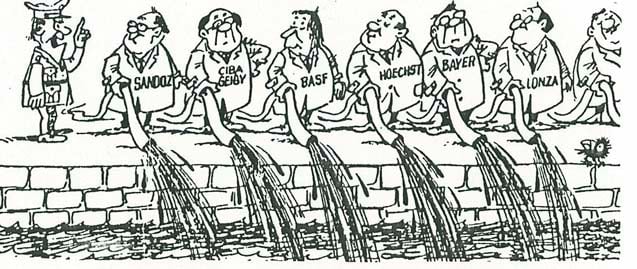
Did you know that Truthout is a nonprofit and independently funded by readers like you? If you value what we do, please support our work with a donation.
Congressional supporters of the chemical industry in the House are sponsoring “The Chemicals in Commerce Act.” Similar pro-industry legislation is circulating in the Senate.
 DDT advertisement, Time, June 30, 1947.These bills intend to continue and worsen the business-as-usual chemical poisoning and pollution of our society and the natural world. They make it difficult even for the pro-industry US Environmental Protection Agency and the states to even try protecting our health from the toxic touch of thousands of untested and hazardous chemicals already in commerce or in the pipeline. These bills are giant chemical industry loopholes punched through our already-tattered environmental protection.
DDT advertisement, Time, June 30, 1947.These bills intend to continue and worsen the business-as-usual chemical poisoning and pollution of our society and the natural world. They make it difficult even for the pro-industry US Environmental Protection Agency and the states to even try protecting our health from the toxic touch of thousands of untested and hazardous chemicals already in commerce or in the pipeline. These bills are giant chemical industry loopholes punched through our already-tattered environmental protection.
This state of affairs also reflects raw corporate power and the triumph of falsehood.
The petrochemical-agricultural complex, for example, has been funding scientists to spin doubts about the deadly ecological and human health effects of one of the country’s greatest crises caused by pesticides and industrialized farming.
Agribusiness and petrochemical organizations use science to bamboozle a pliable government and a not well-informed public. They equate agricltural biocides with science and modernity, denigrating all alternative means of raising food.
 Mexican farm workers harvesting, Coachella Valley. (Photo: Evaggelos Vallianatos)
Mexican farm workers harvesting, Coachella Valley. (Photo: Evaggelos Vallianatos)
They are even using the US Department of Agriculture to adulterate both the law covering organic labeling and organic food. The idea that farmers can produce great food without pesticides – as they did for millennia – is anathema to them. But as long as organic food is profitable and has legal protection, they are capturing several choice organic companies, making them Trojan horses for conventional, i.e., contaminated, food. In other words, polluters want to erase the difference between organic (using no synthetic pesticides, genetic engineering, sludge or radiation) and conventional food (hooked on synthetic pesticides, genetic engineering, cruel giant animal farms, sludge and radiation) while reaping the profits of organic food.
The global pesticide industry alone has been making around $ 40 billion per year. And US land grant universities – funded by petrochemical companies to maintain the fiction of the safety and usefulness of pesticides – earn small amounts of money at the cost of their integrity.
Why have Americans been putting up with this dangerous scheme for decades? First of all, most Americans live in cities. They simply don’t know what farmers do. They know even less about the quality of food they eat. They watch misleading advertisements and believe them. These advertisements sell invented food: tasty, fresh and wholesome.
The reality, however, is different.
Every year, millions of tons of biocides enter the environment, including our food and drinking water. Countless numbers of people get ill and thousands of them die from cancer and a multitude of diseases. A significant part of this disease and death is probably linked to industrial agriculture hooked on giant farms, petrochemicals and heavy machinery.
 Cover of magazine published by the Office of Pesticide Programs, EPA, April 1980.In the 1980s, the EPA – where I worked from 1979 to 2004 – warned that farmers and others living close to farms were dying from cancer at twice the rate of urban people. Today, in 2014, that rate of disease and death must be much higher than that of more than thirty years ago.
Cover of magazine published by the Office of Pesticide Programs, EPA, April 1980.In the 1980s, the EPA – where I worked from 1979 to 2004 – warned that farmers and others living close to farms were dying from cancer at twice the rate of urban people. Today, in 2014, that rate of disease and death must be much higher than that of more than thirty years ago.
Second, global industrialized agriculture, using something like 38 percent of all land and about 90 percent of drinking water, has a deleterious footprint on life in the natural world.
David Coppage and Clayton Bushong, senior EPA ecologists, studied the ecological damage of pesticides in the United States. In their December 1983 report, “On the Value of Wild Biotic Resources of the United States Affected by Pesticides,” they calculated the cost was more than 1.25 trillion dollars per year in lost recreational, commercial, personal food, and aesthetic values.
They further reported that, in the 1950s and 1960s, spraying DDT over marshes and tidelands killed many billions of fish and aquatic invertebrates, including fish eating birds. DDT-like sprays, for instance dieldrin and heptachlor, killed about 80 percent of songbirds, wiping out some game birds while decimating wild mammals. Just the runoff of cotton insecticides “caused staggering losses of fish,” they wrote.
It boggles the mind to think of so massive a “potential” loss we accept. This carnage has been making no difference to policy makers in bed with lobbyists from the agribusiness and petrochemical industries. I observed this incestuous and unethical behavior for more than twenty years. These industries even employ the White House and Congress as their lobbyists. They spread disinformation to Americans, repeating their slogan that America produces the safest and cheapest food in the world.
In the same spirit of defiance and hubris, polluting companies scheme to take down the EPA, their greatest supporter. The crime of EPA? Trying to raise the emission standards for coal power plants. This means that new coal-fired plants would emit less carbon dioxide.
 Nea Oikologia, Athens, April 1987.
Nea Oikologia, Athens, April 1987.
Time has come for the environmentalists to zero in on polluters, suing them for their ceaseless violations of environmental laws.
Environmentalists could also persuade state attorneys generals to sue polluters. They may even be able to convince the federal government to use its antitrust laws to break up the giant farms and companies causing most of the human and environmental disease and death.
Second, many mothers of infants and children are aware their own breast milk and other food are laced with toxins. They need to translate their outrage into political action, form a political party, electing decent people who will do away with pollution. Mothers have no higher value than the health of their children. Unite the mothers and you have a potent force for good.
Finally, we need an EPA independent of chemical lobbyists, Congress and the White House.
Media that fights fascism
Truthout is funded almost entirely by readers — that’s why we can speak truth to power and cut against the mainstream narrative. But independent journalists at Truthout face mounting political repression under Trump.
We rely on your support to survive McCarthyist censorship. Please make a tax-deductible one-time or monthly donation.